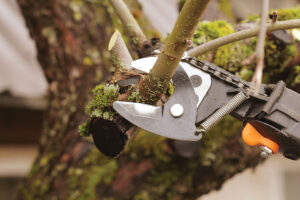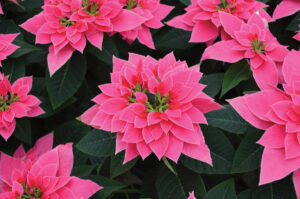Gardeners are always looking for ways to have a healthy garden with little weed growth. Often, it is difficult to have both. A well-fertilized garden will not only allow for healthy vegetables but weeds and grasses too. There are some all-natural methods that gardeners can use to supply nutrients for a great garden while keeping weeds and grasses to a minimum.
If you have raised chickens for any amount of time, you quickly figured out that there is a lot of chicken manure to deal with. While raising chickens and growing vegetables in my garden, I quickly realized the best place for all that chicken manure was in the garden.
Nutrients found in aged chicken manure are similar to those in commercial fertilizers. The average composition of aged chicken waste and litter is approximately 1.8 percent nitrogen, 1.5 percent phosphate and 0.8 percent potash.
The best thing about recycling manure is you don’t have to pay for it. If you don’t raise chickens, someone that does will likely give you as much manure and litter as you want.
Applying 40 pounds of chicken manure and chicken litter annually for every 100 square feet of garden space will improve your vegetable garden immensely and the fertilization will be welcomed by the plants. On average, an adult chicken will generate about 40 pounds of waste in one year. It will take six to 12 chickens to fertilize the average small farm garden for an entire year.
If you have ever walked into a chicken house, the smell of nitrogen likely made your eyes water. The nitrogen in fresh manure will burn young plants, killing them, which is why you need to age manure.
You can add the manure to an existing compost bin or combine it with fallen leaves or dry grass clippings. If left unattended, the compost will be ready for use as fertilizer in six to 12 months. If turned occasionally, the wait time is reduced to four to six months.
Fertilizer can come from other livestock such as rabbits, cows and hogs. If you are an angler, fish carcasses left after cleaning your catch is another good possibility. Aged manure like Black Kow can be purchased in stores that carry garden supplies or online.
With fertilizer on the garden, your plants will be healthy but so will weeds and grasses. There are inexpensive and effective methods to control weed growth without using chemicals.
Straw mulch is available at most garden centers. When piled loosely around plants, it provides excellent weed control. Straw is light and easy to work, making it an excellent choice for old and young gardeners. For best results, remove all weeds and grass before mulching. Add a thick layer up to four inches around plants. Over time, the straw will break down and condense. Add more straw anytime weeds start to peek through or soil is visible. Be sure to purchase straw, not hay. Hay is full of seeds that could cause more weeds to grow.
Newspaper and paper bags offer probably the best weed control. Trim all weeds to no more than six inches tall, then lay down layers of paper or cardboard. Weeds should not be removed. As they decompose beneath the paper, they return valuable nutrients to the soil. Cardboard is perfect for keeping vegetable garden walkways weed-free with no work. To keep paper products in place, top with any other mulch option.
Using leaves after the garden is harvested in the fall is another method of weed control. Pile leaves up to eight inches thick on the garden. In the spring, the partially decomposed leaves can be worked into the soil or added to the surface to provide slow-release fertilizer for the entire growing season.
Gardening is meant to be enjoyable but poor plant health and weeds can quickly change that. Use these natural methods to fertilize your garden and control unwanted weeds, and you will be well on your way to tasty, nutritious vegetables.








